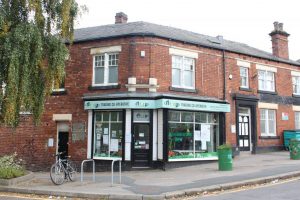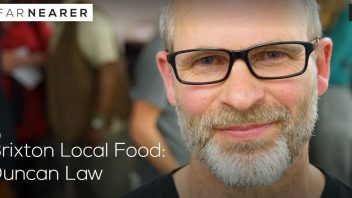Regather in Little Sheffield is starting to put community economic development into practice. UK REconomy Project Coordinator Laura Outhart finds out how.
Regather Works is a trading cooperative based in the Little Sheffield, a densely populated residential community less than a miles walk from Sheffield city centre. Over the years has suffered badly from post-industrial economic decline. In 2015 Regather worked with a small group of local organisations to develop a Community Economic Development plan, to look into how people can come together to bring economic change to the area. (Find out more about the CED programme here and for more on the Little Sheffield’s experience see here). 
As we’ve found with groups we know who have worked on Economic Blueprints, communities who have spent time devising a local economic strategy often find their biggest challenge can be in turning their plans into action. On March 14th Regather Works, in partnership with the REconomy Project, hosted the first of a series of events around their key theme of Urban Agriculture, starting with the question What is the potential of urban agriculture in making Sheffield a sustainable food city?
The packed event kicked off with a set of quick speeches that took us on a whistle-stop tour of the sustainable food arena. First we heard from Sustainable Food Cities who highlighted how much local food partnerships are already achieving across the UK. Next up was Heeley Farm who have been bringing the rural wealth of nature into Sheffield for the past 35 years and posed tough questions about land availability and the difficulty of generating living wages from local food production. Then we were transported to the suburbs of Paris to learn more about AgroCité, a fascinating project exploring how city suburbs can be designed as urban agriculture hubs. Finally, Regather Works outlined their plans to support the growth of urban agriculture in Sheffield and the possible role it could play in the economic transformation of the area.
The discussion then moved to the floor for an extremely lively and diverse session that spanned veg box affordability, land security, gardens for food growing, rough sheep grazing, flexitarianism, a Brexit Land-Army, the risk of creating “new plantations” and much more. As the conversation started to move from questions to possible solutions, familiar themes of improved communications and new currencies started to emerge.
This was just the first of many events planned for the coming months set to include lectures, film screenings and workshops. With over 50 Sheffield communities represented, so many new ideas emerging and a discussion that continued long past the planned end of the event, it definitely felt like a very exciting and uplifting start.







Connect